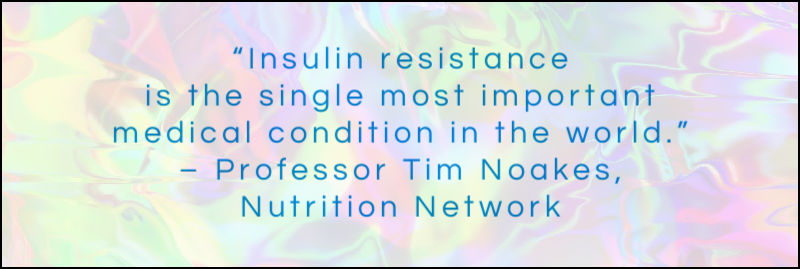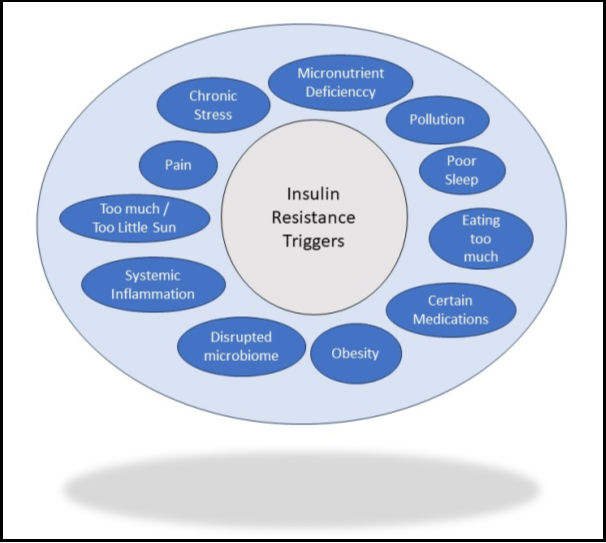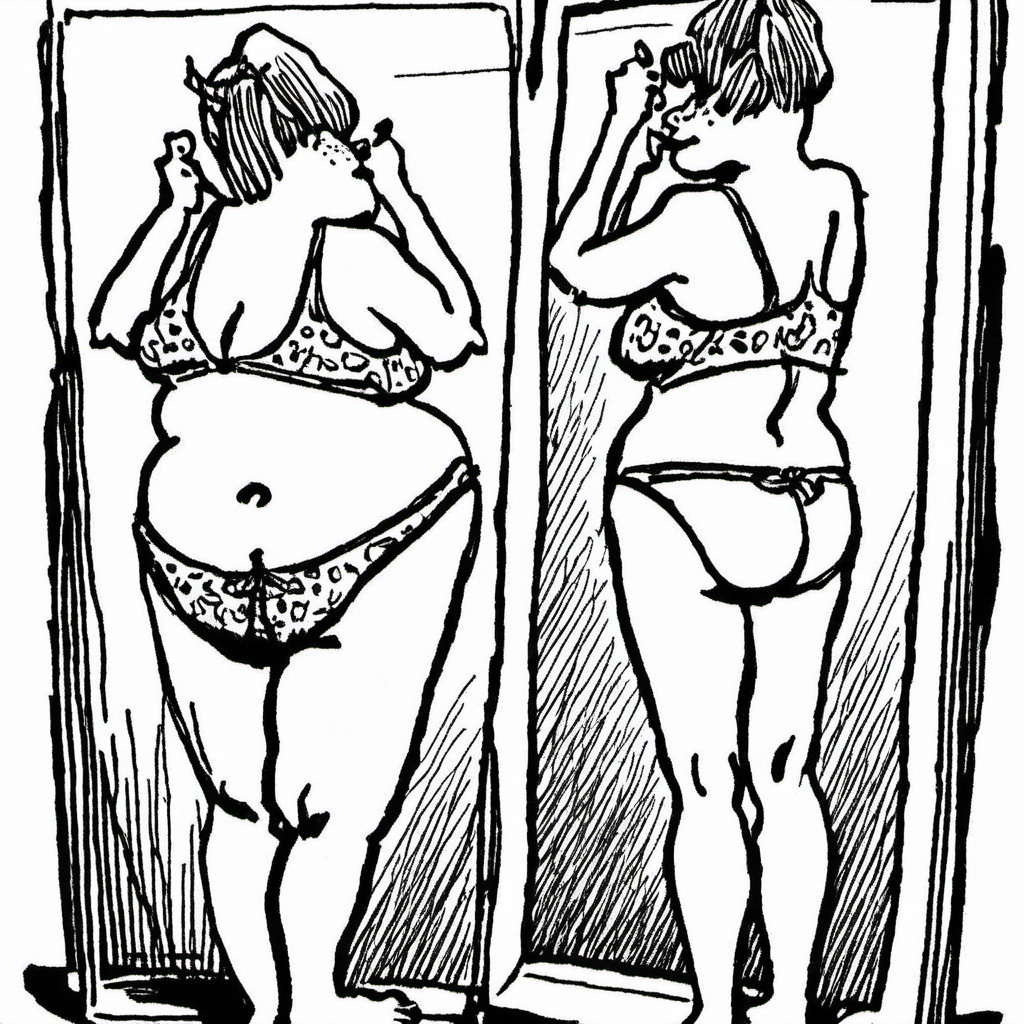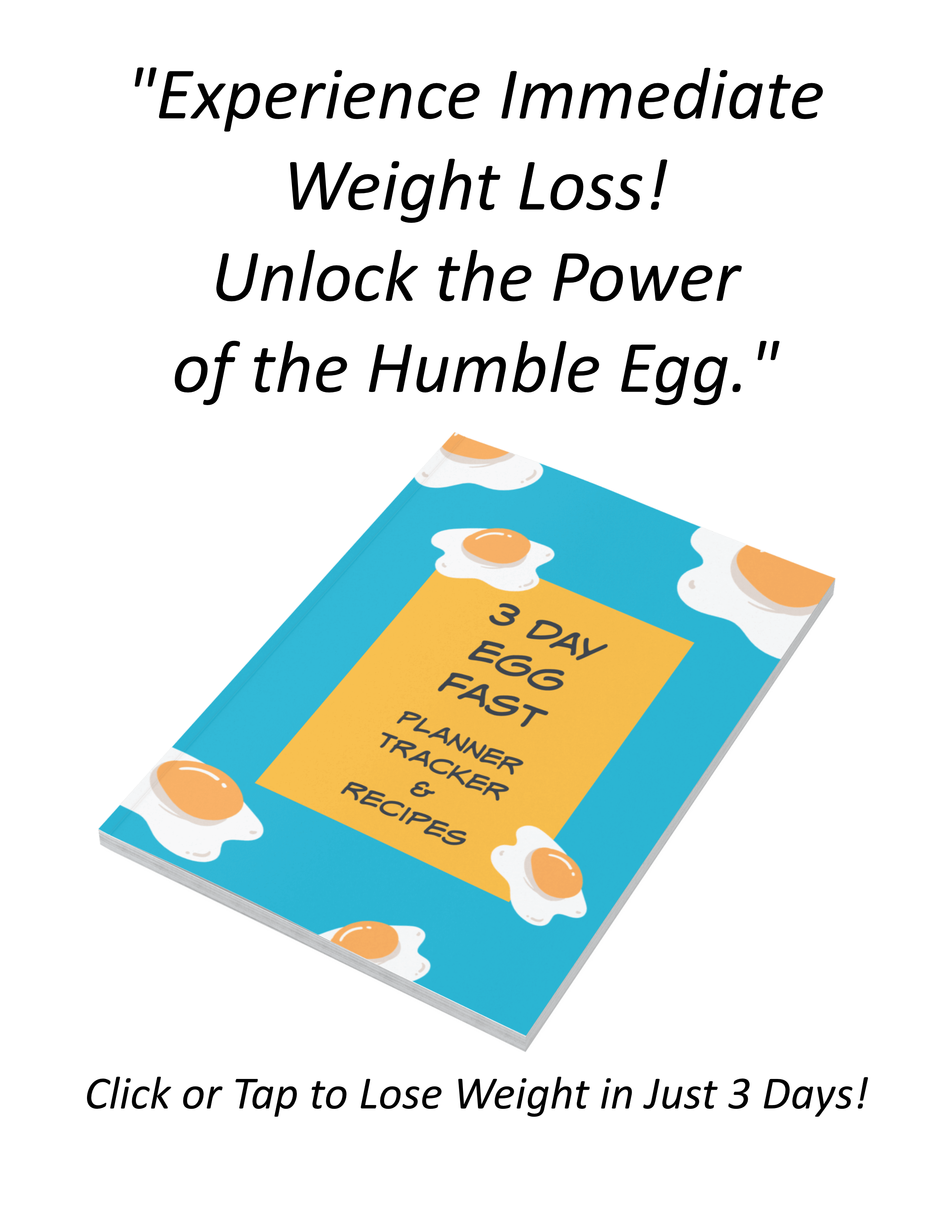- Home
- Insulin Resistance
- Symptoms of Insulin Resistance
Symptoms Of Insulin Resistance
What are the symptoms of insulin resistance? Turns out the symptoms of insulin resistance are very few and far between. There is nothing unique that stands out to tell you what you’re experiencing is insulin resistance. And that makes it difficult to diagnose what may be going on inside your body that could be putting your health at risk.

So, let’s cover a little background. What is Insulin’s job? We need insulin to move sugar or glucose out
of our bloodstream and into our cells to be used as energy. So, what the heck is insulin resistance? Insulin
resistance is a condition that occurs when your cells ignore insulin and refuse
to accept sugar or glucose being delivered from the bloodstream. I've covered this in great detail on this site already, so for a deep dive into insulin resistance read more here.
So, back to the symptoms of insulin resistance. It would be great if there were some red flags waving about to let us know this is happening, but unfortunately there aren’t. As a matter of fact, by the time any related serious health issues arise, insulin resistance has been at play in your body for decades. You read that correctly! Decades! But there are a few clues to follow.
Check Your Skin for Subtle Clues
The symptoms of insulin resistance may include some fatigue or lethargy. But heck, that could be caused by lack of sleep… or a wild night out on the town… or any number of things! So that doesn’t help much.
However, if you have skin tags this could be a very good sign that you may have insulin resistance. According to the Journal of the American Academy of Dermatology, “Multiple skin tags are often found in obese and non–insulin dependent diabetics; the insulin resistance is an abnormality underlying both conditions. The fibroblasts proliferation that occurs in skin tags is caused by an activation of growth insulin receptors for factor-like (IGF1).”
Skin tags often appear around the neck, under breasts, in armpits, eyelids and where there are folds in the skin. But they can grow in the groin area and the anus as well.
Another skin clue is discoloration. If you have areas of your skin that have darkened or appear darker than normal, this could be another sign of insulin resistance. This darkening of the skin is called acanthosis nigricans and is usually found in areas where you have skin folds and creases. It can also be found in places such as around the neck, where it sort of looks like “ring around the collar”. You can see these dark areas in the groin as well. Typically, this condition is found in people who carry extra body fat. Besides its darker color, the skin may also feel thicker and perhaps even a little velvety to the touch.
Here’s another clue. If you’re a female and you have significant hair growth in unwanted places, like your face, you could have polycystic ovary syndrome (PCOS) which could also be a sign of insulin resistance.
Fertility Issues?
For women, the inability to conceive may appear as a symptom of insulin resistance. You may have light, irregular periods. You may even develop some ovarian cysts. This doesn’t guarantee insulin resistance but it’s definitely a good reason to be checked out by your doctor.
If you’re then diagnosed with polycystic ovary syndrome (PCOS) you may very well have insulin resistance. The reason is that insulin resistance will cause you to have very irregular menstrual cycles. And if you do ovulate, your body won’t produce enough follicles which will prevent the sperm from fertilizing the egg. And, as I've already mentioned, you may even grow facial hair.
Gaining Weight?
Although people don’t have to be overweight to have insulin resistance, gaining weight for no apparent reason could be a sign. That’s especially true if no matter what you do, you can’t seem to get the weight off. How frustrating is that?! But that’s not much of a symptom to go on because there are a lot of reasons why people may gain weight.
Long Term Consequences of Insulin Resistance
As you can see, symptoms of insulin resistance aren’t easily determined. You likely won’t feel anything. And the damage will progress quietly and morph into something more worrisome. And in many cases, that something is metabolic syndrome. You don’t want that, so inform yourself. You can read more about metabolic syndrome here.
Taking Control!
So, how do you take control of something that is so confounding and difficult to detect? There really aren’t any obvious symptoms of insulin resistance. So what are you supposed to do about it?

There are some things that contribute to developing insulin resistance. They include:
- micronutrient deficiency,
- pollution,
- poor sleep,
- eating too much,
- certain medications,
- obesity,
- disrupted biome,
- systemic inflammation,
- too much or too little sun,
- pain and
- chronic stress.
So get out in the fresh air, get quality sleep, eat whole foods and be good to yourself.
Get annual check ups and ask your doctor to test for fasting
insulin levels. In addition, have your doctor
test fasting blood glucose. Your doctor can then discuss the results with you. Depending
on the result, he or she may suggest dietary and lifestyle changes or prescribe
medication.
Whatever the outcome, it’s never too early or too late to improve your diet. I think improving your diet is the best strategy. If you want to be metabolically healthy, you’ll need to ditch junk food and lower your overall carbohydrate intake. Many doctors now recommend that the best way to reverse insulin resistance and to avoid metabolic syndrome is through a keto or low carb diet.
The low carb and keto diets keep your blood glucose levels stable which lessens the need for your pancreas to release large amounts of insulin. The less insulin, the less likely the cells will become resistant. You can learn more about the low carb diet here.
Here’s another important thing you can do to make your cells more responsive to insulin. Exercise. You don’t need to be in the gym for hours on end. It’s simpler than that. Go for a regular brisk walk or lift some weights. Anything you can do to get your muscles activated will go a long way in keeping you metabolically healthy.
Symptoms Of Insulin Resistance - A Final Word
I once worked with a fellow who had skin tags all over his face and quite a few on his eyelids. It marred his otherwise good looks. And he wanted to lose a few pounds. We lost touch and then I saw him a few years later. He had shed a lot of weight, and he didn’t have one skin tag on him. Not one! When I said he looked as though life was treating him well, he credited his newfound health to what he called a “no sugar diet”. Imagine that! I was so happy for him! Because I knew if he looked good on the outside it meant his insides were lookin’ pretty good too!
Other changes come too. And little by little our overall health improves. We feel better mentally and physically. And that’s when it dawns on us that we weren’t feeling all that great before. Feeling lousy was just our normal. You’ll be amazed at how good you can feel with the right lifestyle changes.
But that means getting healthy and staying healthy. Check for hidden symptoms to expose risks such as insulin resistance.
Want to get started with healthier eating? I can help you do that.
Here’s where you can learn more about my services.
Return to the Insulin Resistance Page.






New! Comments
What do you think about what you have read on this page? I'd love to know! Leave me a comment in the box below.